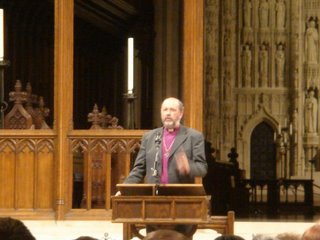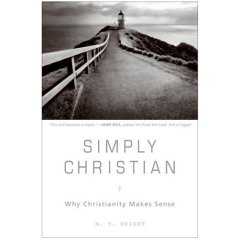Some people are saying "Yes" and
point to polls that show that 60% of those polled who HAD read the book believed some of its outlandish claims, such as Jesus' having children with Mary of Magdala, verses only 30% who had not read the book.
Certainly the book, and to a much lesser extent the film as well, calls into question some of the very foundational acts of the Church: the formation of the New Testament canon, the doctrine of the divinity of Christ and the Trinity as taught by the Nicene Creed and so forth. But since most American Protestant Christians don't know ANYTHING about these issues and just accept what they are told uncritically, maybe a movie coming along and raising a few questions (like "why THESE books in the New Testament?" or "why accept the teachings of the Early Church councils?") isn't such a bad thing, especially when the alternatives it supplies are really less attractive than classical Christianity anyways. We have been given a wonderful teaching moment. (I should admit that those are exactly the questions that have pushed me in the direction of a more traditional and "catholic" form of Christianity.)
The book by Dan Brown certainly presents a great deal of historical distortion as any Christian, Roman, or Medieval historian will tell you (regardless of their own faith commitments or lack thereof). The United Methodist Church's board of Discipleship has (like many other groups) issued a detailed
rebuttal of certain claims that the book makes if you are interested. It seems to me that no matter how strenuously legitimate historians declare that the history presented by this novel is distorted, some people will believe it anyway either because they are hopelessly cynical about the legitimacy of the historians and "knowledge elite," or because they are seeking a justification for their already-present lack of faith in Jesus Christ as he is preached by the Church through the ages. The Da Vinci code then, isn't really the cause of skepticism in these cases, simply a convenient rallying point for those who already possessed it.
What should we do? Let's engage the questions! There are legitimate answers as to why the Bible contains some books and not others. The council of Nicea and some of the subsequent Early Ecumenical Councils need not be seen as a political hijacking of Christianity on the part of any Empire, but a legitimate work of the almighty and all-wise Holy Spirit in the Body of Christ. If we really believe that, we have nothing to fear from this or any other movie. If they gates of hell shall never triumph over the Church (Matt. 16), we can be assured that a handful of entertaining lies certainly cannot.
Labels: Christ and Culture


 Those of us who were fortunate enough to attend this lecture had a wonderful trip and very much enjoyed wandering around the enchanting gardens surrounding the Cathedral and attending the sung evening prayer service (evensong) before the lecture.
Those of us who were fortunate enough to attend this lecture had a wonderful trip and very much enjoyed wandering around the enchanting gardens surrounding the Cathedral and attending the sung evening prayer service (evensong) before the lecture.